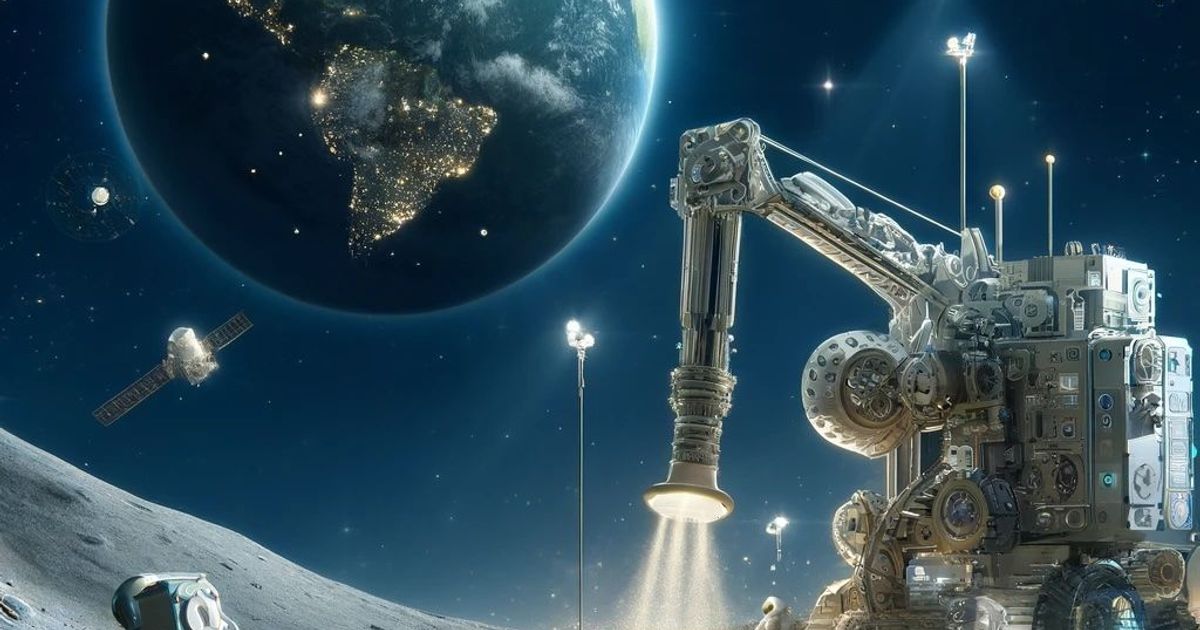Technologies developed for space missions, such as water recycling systems and vertical farming, are being used to address environmental issues here on Earth. In addition, responsible mining of raw materials on the Moon and asteroids offers perspectives for reducing our environmental footprint. This requires a “full respect management” approach, where sustainable and ethical use is crucial. Furthermore, geopolitical challenges, such as the Artemis Accords and the ILRS Initiative, underscore the importance of international cooperation and ethical standards in further space exploration.
In the vastness of the universe, humanity has always found inspiration, wonder, and the opportunity to explore. As we increasingly venture beyond our planet's boundaries, we must consider the consequences, both for the universe and for the sustainability of our future on Earth. When we think about future exploitation of the Moon and asteroids, it is essential that this be done within a framework of total respect. Only in this way can we preserve these celestial bodies and the raw materials they contain for future generations.
How space exploration can make life on Earth sustainable
Space exploration, often thought to be limited to scientists and astronauts, can help us treat our planet more sustainably. For example, satellites are essential for monitoring climate change, monitoring deforestation, and managing natural resources. They provide invaluable data for assessing ecosystem health, monitoring sea levels, and predicting natural disasters. In addition, space technologies are essential to improve agricultural practices, improve water use, and reduce the impact of climate events on vulnerable communities. For example, water recycling systems can help us combat drought on Earth, and vertical farms can fuel our growing cities. Both technologies were developed for or on the International Space Station.
By encouraging innovation and pushing the boundaries of scientific knowledge, space exploration drives the development of sustainable solutions that benefit Earth and future space missions. Furthermore, the search for planets and other celestial bodies provides insight into alternative energy sources and raw materials. Therefore, research conducted for the Mars mission could lead to breakthroughs in renewable energy technologies or new methods of sustainable agriculture.
Green economy in space
The green economy is about creating wealth in combination with preserving the environment. By using space resources responsibly, we can stimulate economic growth while reducing our environmental footprint, paving the way for a greener, more sustainable future. Raw materials found in space, including those found on the Moon and asteroids, can help us transition to a more sustainable economic model. The abundance of rare metals in space, such as platinum, cobalt and helium-3, would reduce our need for terrestrial raw materials and reduce our dependence on environmentally unfriendly mining practices. At the same time, it is important to extract minerals from space sustainably, while preserving the celestial bodies that provide us with these raw materials.
These space resources could also revolutionize many industries, from renewable energy to advanced manufacturing, with AI-powered robots. Helium-3 also shows promise as a fuel for nuclear fusion reactors, and is a cleaner and more abundant energy source than traditional fossil fuels.
In the future, we see the possibility of transporting heavy industry to the moon, thus finding a sustainable way to use raw materials. After production, the finished products can then be transported back to Earth, reducing the environmental impact of the production processes. In addition, the lower gravity on the Moon makes it easier and more sustainable to launch missions to other celestial bodies such as asteroids and Mars.
Exploration and protection of the moon and asteroids
As humanity contemplates mining on the Moon and asteroids, it is necessary to do so within a framework of full respect. Rather than viewing space resources as a commodity to be exploited, this approach calls for sustainable use that balances economic interests with long-term preservation. This approach emphasizes environmentally conscious, ethical practices that prioritize the preservation of celestial bodies and their inherent value.
The basic principles of management include full respect for environmental conservation, resource conservation, international cooperation and ethical considerations. Using these principles as our guide, we can ensure that our exploration and exploitation of space resources is conducted in a manner that adheres to ethical standards and protects celestial bodies for future generations. The role of governments is to create a multilateral framework, a set of rules that private sector actors must respect.
When space becomes geopolitical
Geopolitical tensions on Earth in space exploration are reflected in initiatives such as the Artemis Accords and the ILRS (International Lunar Research Station) initiative. The Artemis Accords, led by the United States, along with several allies such as Canada, Japan and some European countries, emphasize a transparent cooperative framework for exploring the moon. The ILRS initiative, led by China and Russia, offers its own alternative partnership for lunar exploration, further highlighting geopolitical dynamics. Competition and divergent strategic interests among major spacefaring nations could affect future international cooperation in space. So, as nations compete for influence and resources beyond Earth's atmosphere, addressing these tensions is critical as we shape humanity's future beyond our planet.
The intersection of space exploration, sustainability and the green economy offers limitless opportunities for innovation, economic development and environmental management. As we venture into the cosmos and consider extracting resources from celestial bodies, it is essential to adopt a fully respectful management mindset that prioritizes ethical practices and preservation of planetary environments. If we use space exploration to promote sustainability on Earth and beyond, we can chart a path toward a greener, more prosperous future for all.

“Total coffee specialist. Hardcore reader. Incurable music scholar. Web guru. Freelance troublemaker. Problem solver. Travel trailblazer.”






More Stories
“Ask at least one question in return.”
Elbendamers in the Sun: What a Wonderful Little Village
European Space Agency – Space for Kids